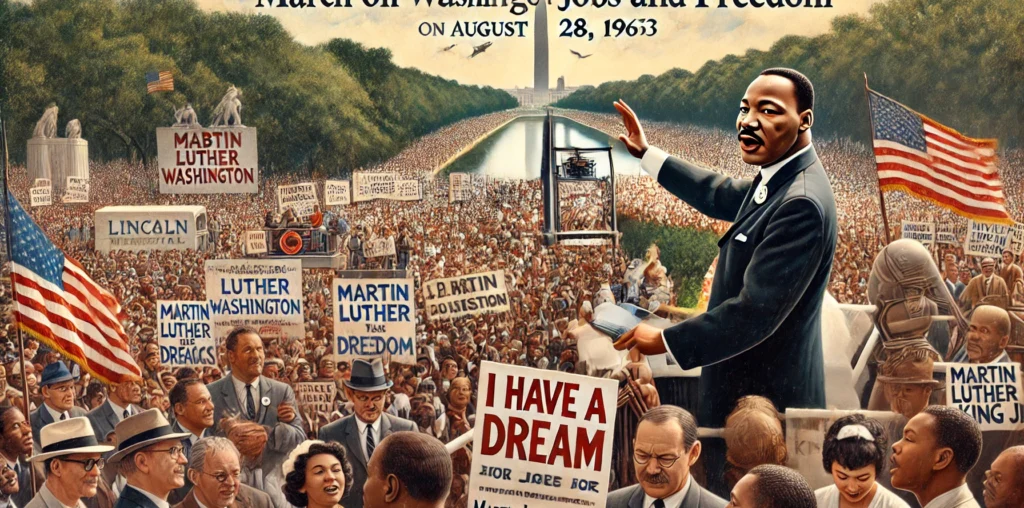The Historical Background
On August 28, 1963, the United States witnessed one of the most significant civil rights events in history—the March on Washington for Jobs and Freedom. Organized by major civil rights organizations and labor unions, this monumental event aimed to highlight the challenges faced by African Americans and call for economic and civil rights reforms.
Key Details
An estimated 250,000 people gathered at the Lincoln Memorial in Washington, D.C., making this one of the largest human rights gatherings of its time. The rally featured a series of speeches, the most iconic of which was Dr. Martin Luther King Jr.’s ‘I Have a Dream’ speech. King’s heartfelt words resonated with the crowd, envisioning a future where all people would be judged by the content of their character rather than the color of their skin.
The Long-Term Impact
The March on Washington for Jobs and Freedom was instrumental in the passage of landmark legislation, including the Civil Rights Act of 1964 and the Voting Rights Act of 1965. It galvanized support for the civil rights movement and amplified its core message of equality and justice. The event’s legacy endures, serving as a testament to the power of peaceful protest and collective action in shaping a just society.
Looking Forward
As we reflect on this historic event, its lessons remain relevant. The march underscored the importance of solidarity, advocacy, and the relentless pursuit of justice. While significant progress has been made, the fight for equality continues, reminding us that the dreams of August 28, 1963, are still inspiring activists today.

